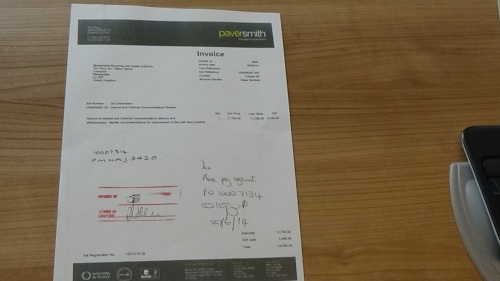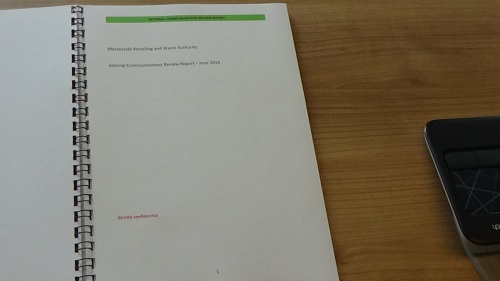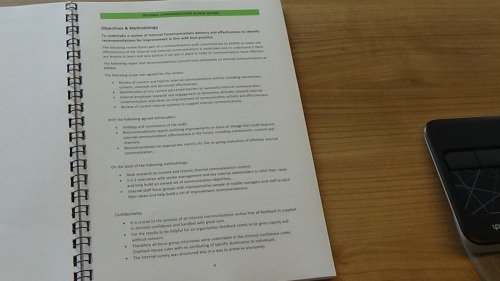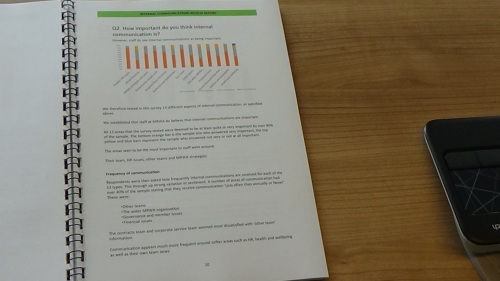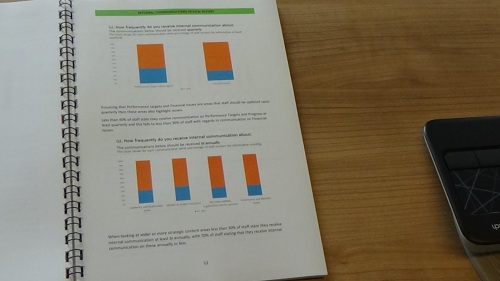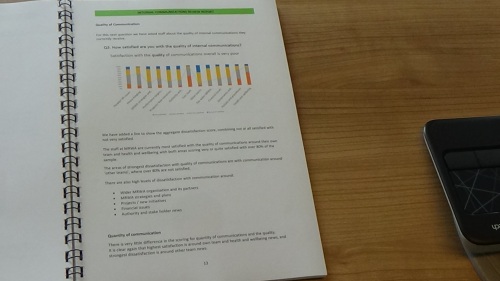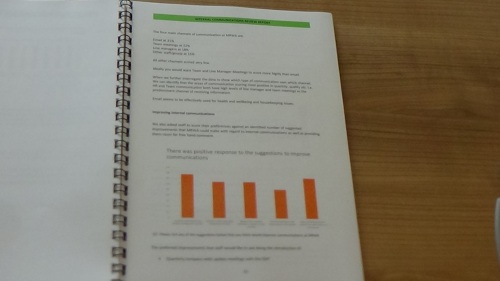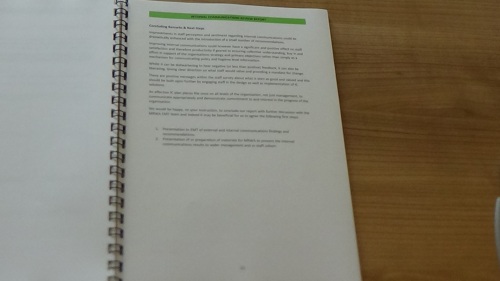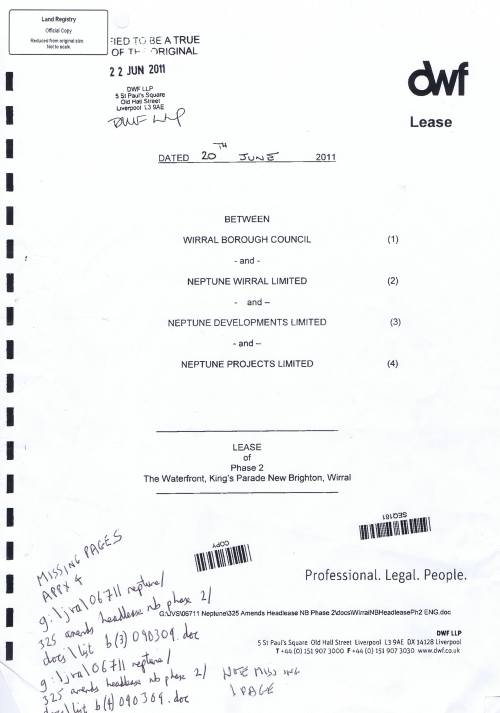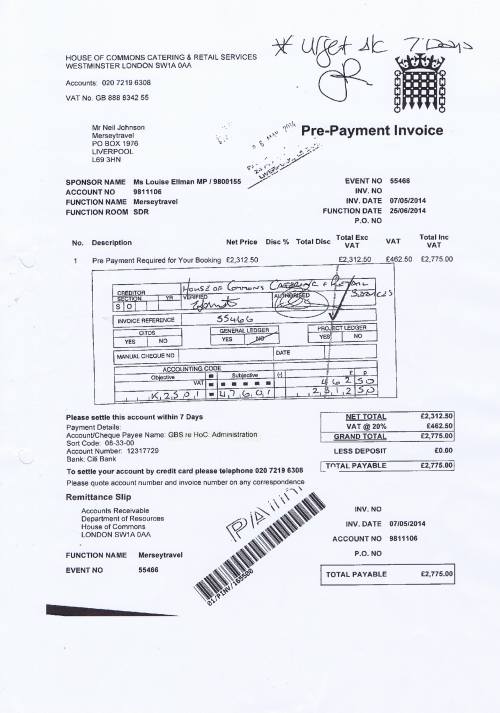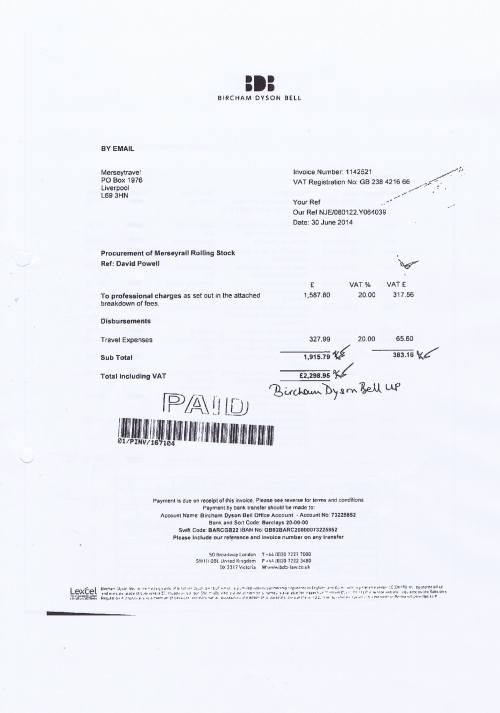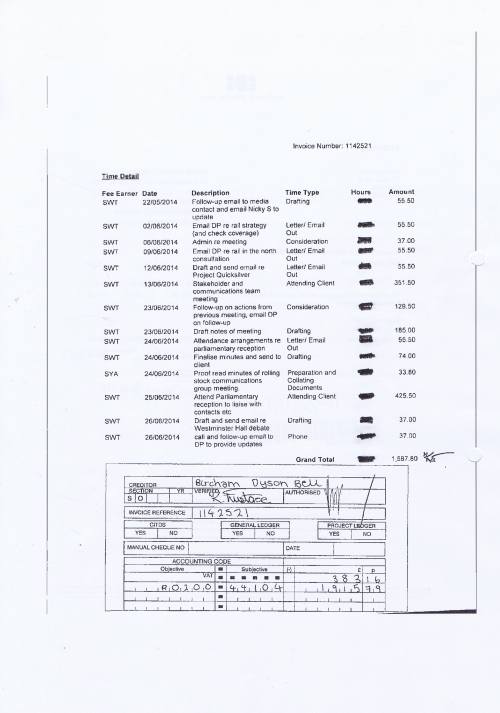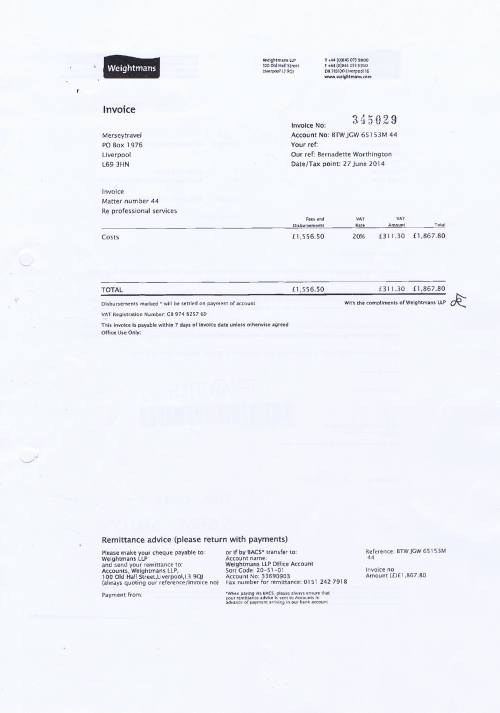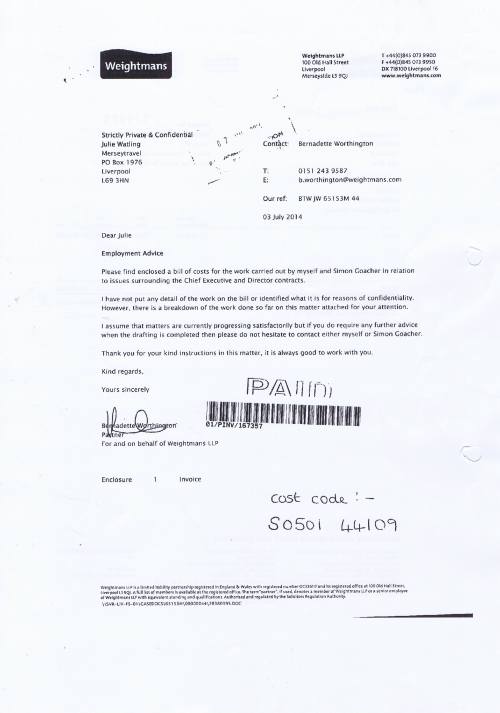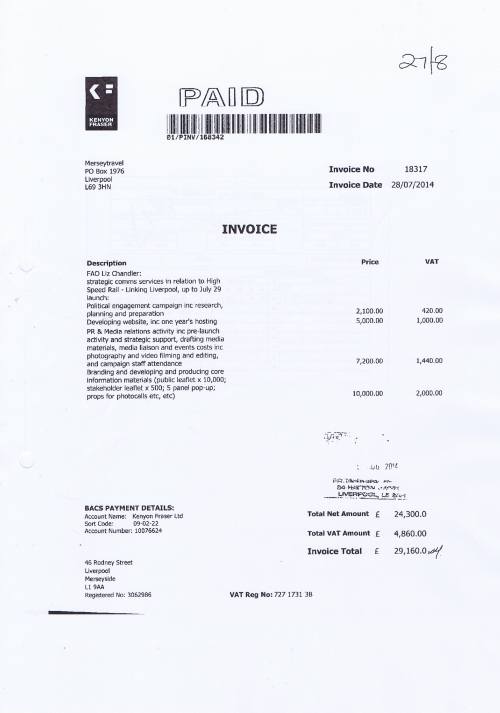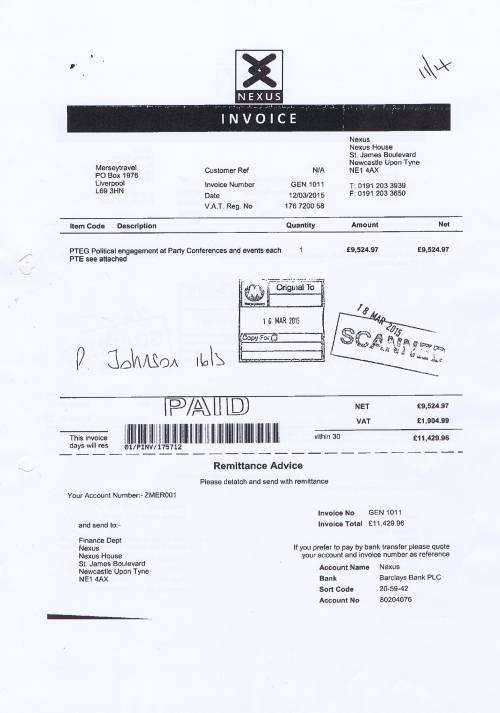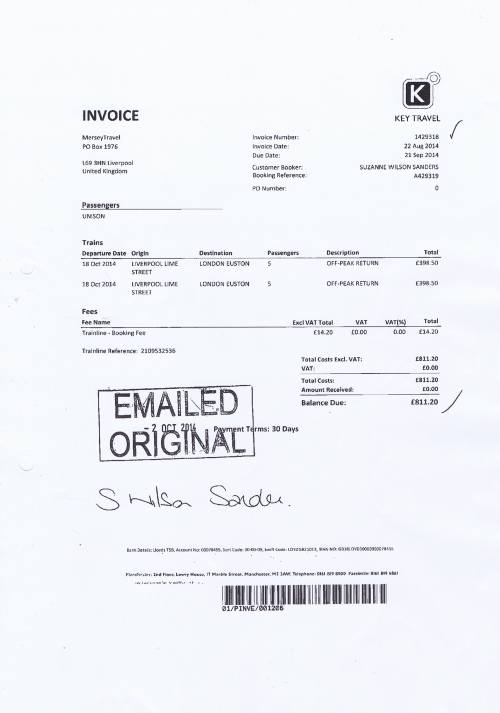ICO issues 2nd decision notice stating Wirral Council breached more laws in how it handled a FOI request

So far I’ve written three blog posts about this one FOI request, which in chronological order are ICO issues decision notice stating Wirral Council breached 4 laws in how it handled a FOI request (9th September 2014), Wirral Council take nearly 20 months to respond to a FOI request for SACRE meeting minutes that should only take 20 days (10th November 2014) and Why after 2 years, 3 months and 19 days have Wirral Council U-turned on refusing a FOI request for minutes of a public meeting that they claimed was vexatious? (18th July 2015).
The FOI request this relates to was made through the excellent whatdotheyknow.com website on the 29th March 2013. It’s for minutes of the meetings of 26 different panels, statutory committees, advisory committees and working parties that councillors are appointed to by Wirral Council.
In September 2014, the Information Commissioner’s Office issued 9 page decision notice FS50509081. In a nutshell that decision notice stated that by the 13th October 2014 Wirral Council had to:
a) respond to the FOI request without relying on either section 12(1) of the Freedom of Information Act 2000 c.36 or Regulation 12(4)(b) of the Environmental Information Regulations 2004. The first relates to a costs exemption and the second relates to that “the request for information is manifestly unreasonable”.
and
b) advise whether it held the minutes of these meetings or not.
Wirral Council did not respond to the decision notice by the 13th October 2014. Instead it took a further three weeks than was allowed and Wirral Council responded on the 4th November 2014. Minutes of seven meetings were supplied (some minutes were supplied with some information blacked out). In response to other parts of the request it provided links to its website.
This left nine disputed parts of the request which were in relation to the bodies below (I’ll use the original numbering). JCC stands for Joint Consultative Committee and Members means councillors. I provide under each one what it’s remit was:
4 (School Appeals Panel)
To consider, as part of a statutory review process, appeals against decisions by the Local Authority (or the Governors of voluntary or aided schools) concerning the allocation of places in primary and secondary schools, and decisions by governing bodies concerning the exclusion of pupils.
The School Appeals Panel is drawn from a “pool” of lay members or members with experience in education. However, Councillors are ineligible to serve on Appeals Panels for schools under local authority control.
5 (Standing Advisory Committee on Religious Education (SACRE))
SACRE is responsible for advising the local authority on matters concerning the teaching of religious education and collective acts of worship; it decides on applications for determination of cases in which requirements for Christian collective worship are not to apply; and may require the local authority to review its agreed syllabus.
8 (Adoption / Fostering Panels)
As part of a wider membership, to determine applications for the adoption and for the fostering of children.
10 (Unified Waiting List Management Advisory Board)
To consider appeals from applicants who consider they have been unfairly treated or unfairly excluded from the waiting list, having exhausted the Steering Group appeals procedure.
11 (Discharge from Guardianship by Wirral Council under the Mental Health Act 1983 Panel)
To hear requests to discharge service users subject to guardianship upon the application of a professional responsible for their care.
15 (Headteachers and Teachers JCC)
To meet with headteachers’ and teachers’ representatives to discuss educational issues.
18 (Members’ Training Steering Group)
To advise on the preparation of the annual programme of training for Council members and on individual applications to attend courses.
19 (Members’ Equipment Steering Group)
To review IT equipment provision for members.
26 (Safeguarding Reference Group)
Established by Cabinet on 15 April 2010 for the purpose of ensuring that the most senior community leaders of the Council are enabled to carry out their responsibilities of safeguarding children and adults in Wirral.
Minutes of a School Appeals Panel meeting (part 4 of the request) were refused based on section 40 (personal information) of the Freedom of Information Act 2000.
Minutes of a Standing Advisory Committee on Religious Education meeting (part 5 of the request) were provided but with names other than that of councillors blacked out based on section 40 (personal information) of the Freedom of Information Act 2000.
Minutes of the Adoption/Fostering Panels (part 8 of the request) were refused based on section 40 (personal information) of the Freedom of Information Act 2000.
Minutes of a Unified Waiting List Management Advisory Board meeting (part 10 of the request) Wirral Council merely stated “Officers are investigating if this Board has ever met/if there are any minutes available and we will answer this part of your enquiry as soon as possible.”
Minutes of a Discharge from Guardianship by Wirral Council under the Mental Health Act 1983 Panel (part 11 of the request) were refused based on section 40 (personal information) of the Freedom of Information Act 2000.
Minutes of a Headteachers and Teachers Joint Consultative Committee meeting were refused based on section 36 (prejudice to the effective conduct of public affairs) of the Freedom of Information Act 2000.
Minutes of a Members’ Training Steering Group meeting were refused based on section 36 (prejudice to the effective conduct of public affairs) of the Freedom of Information Act 2000.
Minutes of a Members’ Equipment Steering Group meeting were refused based on section 36 (prejudice to the effective conduct of public affairs) of the Freedom of Information Act 2000.
Finally, minutes of a Safeguarding Reference Group meeting were refused based on section 40 (personal information) of the Freedom of Information Act 2000.
So I requested an internal review of the application of these exemptions on the 12th November 2014. On the 30th April 2015 Wirral Council responded to the internal review request. I’ll point out here that internal reviews are supposed to be completed within 40 days, but Wirral Council took 5 months.
Wirral Council’s response was that section 14 (vexatious or repeated requests) of the Freedom of Information Act 2000 applied and it didn’t have to do an internal review.
This decision was then appealed to the Information Commissioner’s Office.
On the 17th July 2015, Wirral Council did a U-turn. In respect of part of the internal review that challenged obscuring names (other than councillors) in minutes released of the Standing Advisory Committee on Religious Education (part 5 of the request), I’d pointed out that the minutes of this public meeting were open to public inspection because of regulation 7 of the Religious Education (Meetings of Local Conferences and Councils) Regulations 1994. Wirral Council agreed with me and released the complete minutes of the SACRE meeting (which meets in public).
Wirral Council also pointed out that since the Council’s housing stock was transferred out of Wirral Council’s control in 2009, that the Unified Waiting List Management Advisory Board (part 10 of the request) hadn’t met.
In relation to part 21 (Hilbre Island Nature Reserve Management Committee) Wirral Council stated “There are no minutes from 2013 the Hilbre Island Nature Reserve Management Committee as the present Committee was formed in March 2014.”
However Wirral Council still regarded the rest of the internal review request to be vexatious.
On the 29th July 2015 the Information Commissioner’s Office issued a further 13 page decision notice (FS50569254).
This decision notice found in relation to part 4 (School Appeals Panel) and part 11 (Discharge from Guardianship by Wirral Council under the Mental Health Act 1983 Panel) that Wirral Council does not hold information related to this part of the request.
This finding on the school appeals panels I find odd since the school appeals panel meets at Wallasey Town Hall. In response to a previous FOI request Wirral Council stated that it pays the taxi expenses for school appeals panel members and Wirral Council employees from the Legal & Member Services section of Wirral Council take the minutes of these meetings. Apparently Wirral Council states that there were School Appeal Panel meetings in 2012 but as they only keep the decision notices for 2 years that now it’s 2015 that Wirral Council don’t have them any more.
ICO also found that Wirral Council didn’t hold meetings of the Hilbre Island Nature Reserve Management Committee and believed Wirral Council when it stated “There are no minutes from 2013 the Hilbre Island Nature Reserve Management Committee as the present Committee was formed in March 2014.”
This is disputed by both Cllr Chris Carubia and Cllr Pat Williams as you can see by their response to a tweet below:
@cllrccarubia Did the Hilbre Island Nature Reserve Management Committee exist prior to 2014? #FOI #ICO https://t.co/pDHhBls956
— John Brace (@level80) July 17, 2015
@level80 @cllrccarubia Yes, I was a proud member for a number of years.
— Patricia Williams (@mrspatwilliams) July 17, 2015
https://twitter.com/cllrccarubia/status/622150465715859456
However, ICO stated that Wirral Council breached section 10 (time for compliance with request) of the Freedom of Information Act 2000 with regards to part 5 (Standing Advisory Committee on Religious Education (SACRE)) of the request and part 10 (Unified Waiting List Management Advisory Board) because “it did not disclose information or provide a response in relation to these parts within 20 working days”.
ICO also stated in its decision notice that Wirral Council had incorrectly applied section 14(1) (vexatious or repeated requests) to parts 15 (Headteachers and Teachers JCC), 18 (Members’ Training Steering Group), 19 (Members’ Equipment Steering Group) and 26 (Safeguarding Reference Group) of the request, because “these elements of the request are not vexatious”.
ICO did decide that Wirral Council had correctly applied section 14(1) to part 8 (Adoption/Fostering Panels) of the request because it deemed it to be vexatious (but is clarified in the decision notice as being a “disproportionate burden”). Wirral Council supplied the minutes of one adoption panel meeting and one fostering panel meeting to the Information Commissioners Office which came to a total of 95 pages. Wirral Council estimated it would take 23.5 hours of staff time (just over 15 minutes a page) to make the necessary redactions.
However the minutes of the Headteachers and Teachers JCC meeting, Members’ Training Steering Group meeting, Members’ Equipment Steering Group meeting and Safeguarding Reference Group came to less than 15 double-sided pages (30 sides of A4).
The decision notice also states “The complainant will not receive a response to some parts of his request until more than two years after he submitted it.”
Either Wirral Council or myself could appeal this ICO decision notice to the First-Tier Tribunal (Information Rights) within the next 28 days.
So do you think that now Wirral Council can’t rely on section 12 (exemption where the cost of compliance exceeds appropriate limit) or section 14 (vexatious or repeated requests) in respect to the Headteachers and Teachers JCC meeting, Members’ Training Steering Group meeting, Members’ Equipment Steering Group meeting and Safeguarding Reference Group meeting part of this request that I’ll finally get the information?
Here are some quotes from the decision notice (committee in the first quote refers to Hilbre Island Nature Reserve Management Committee).
“The Council, however, confirmed to the Commissioner on 20 July 2015 that, having undertaken a thorough search, it does not hold any Committee minutes from 2013 or earlier.
ICO believed Wirral Council so I suppose these published minutes of the Hilbre Island Nature Reserve Management Committee published on Wirral Council’s website from the 13th April 2007, 23rd November 2006, 13th July 2005 and even as far back as 6th April 2001 are just figments of my imagination. Perhaps I’m not “on message” enough!
Here’s another quote:
“The Council’s information manager had calculated that it took 70 hours and £1,750 to provide its response to the complainant dated 4 November. It argued that the amount of time the information management team had to spend on locating, retrieving and reading information falling within the scope of the request had a detrimental impact on the team.”
On the 4th November 2014 Wirral Council provided 22 A4 pages of information. The rest it either said it didn’t hold, was already on its website or that an exemption applied. That’s £79.54 per a page (or over 3 hours per an A4 page) of released information! How can it have had a “detrimental impact on the team” when Wirral Council took the 35 days the decision notice allowed plus an extra 22 days!
and another
“The Council says this work would cause a disproportionate burden because the request does not appear to have an inherent purpose or value.”
So knowing what and how councillors make important decisions on the public’s behalf doesn’t have an “inherent purpose or value”?
If you click on any of the buttons below, you’ll be doing me a favour by sharing this article with other people.
